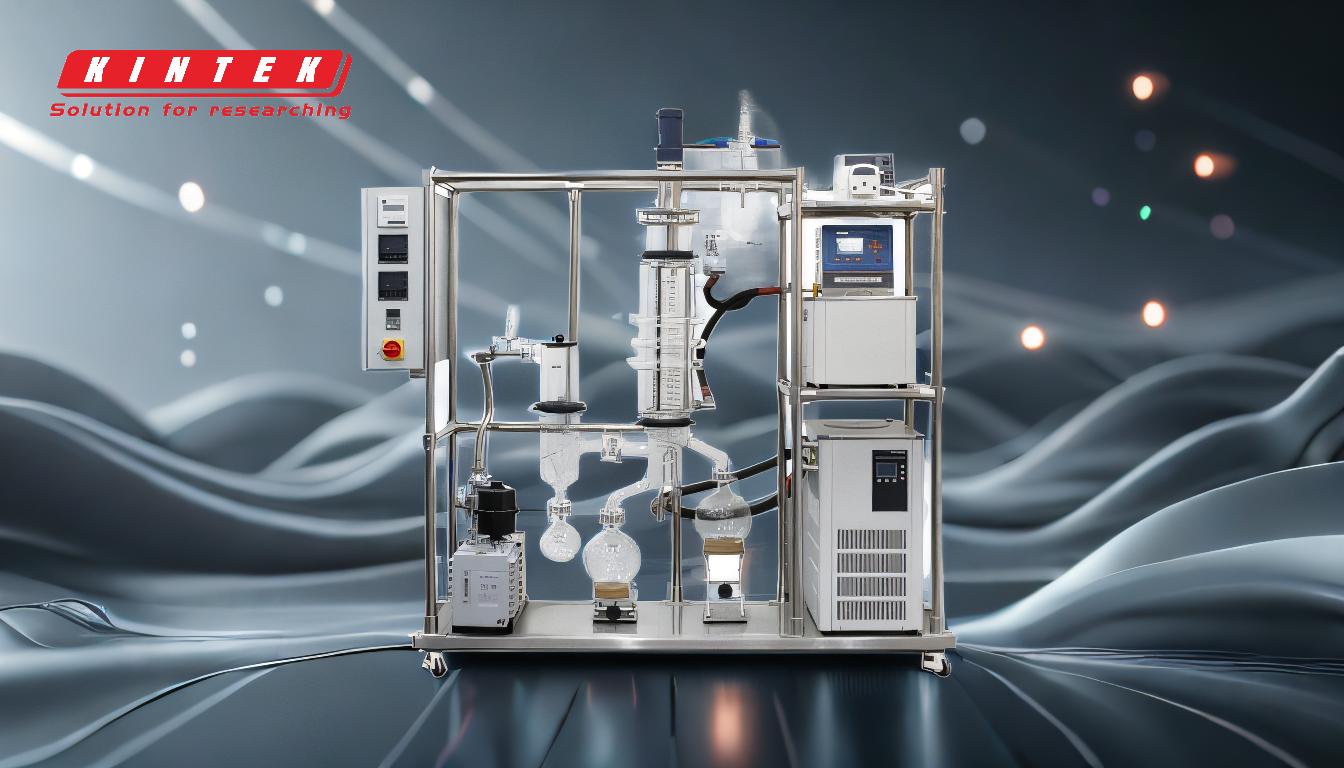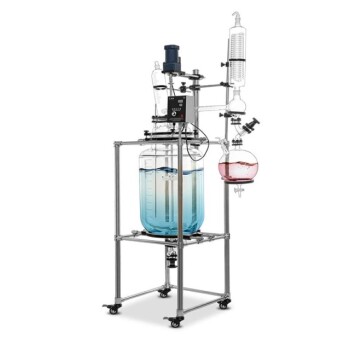Distillation in the pharmaceutical industry is a critical process used to separate, purify, and concentrate compounds essential for drug manufacturing and other applications. It involves heating a mixture to vaporize its components, which are then condensed back into liquid form, allowing for the separation of substances based on their boiling points. Two common types of distillation used in pharma are short path distillation and molecular distillation. These methods are particularly valuable for handling heat-sensitive compounds, such as vitamins, amino acid esters, and organic compounds, ensuring their integrity and efficacy. Distillation is widely applied in the production of medicines like penicillin, aspirin, and skincare products like vitamin E, as well as in processes like solvent swapping, crystallization, and impurity removal.
Key Points Explained:

-
Definition and Purpose of Distillation in Pharma:
- Distillation is a separation technique used to purify or concentrate compounds by exploiting differences in their boiling points.
- In the pharmaceutical industry, it is essential for producing high-purity substances required for drug formulations and other applications.
-
Types of Distillation in Pharma:
-
Short Path Distillation:
- A method used for heat-sensitive compounds, such as vitamins (e.g., vitamin E) and amino acid esters.
- Operates under reduced pressure, allowing for lower boiling points and minimizing thermal degradation.
-
Molecular Distillation:
- A specialized form of short path distillation used for compounds that degrade at high temperatures (e.g., organic and silicon compounds).
- Ideal for processes like solvent swapping, crystallization, and removing volatile impurities.
-
Short Path Distillation:
-
Applications of Distillation in Pharma:
-
Production of Medicines:
- Used in the manufacturing of drugs like penicillin, aspirin, topical ointments, and cough syrups.
-
Skincare and Nutraceuticals:
- Vitamin E, a popular ingredient in skincare products, is often purified using short path distillation.
-
Separation and Purification:
- Effective for separating chemical compounds, removing water, and purifying substances from impurities.
-
Production of Medicines:
-
Advantages of Distillation in Pharma:
-
Preservation of Heat-Sensitive Compounds:
- Short path and molecular distillation ensure that delicate compounds are not degraded during the process.
-
High Purity Output:
- Enables the production of highly pure substances, which is critical for pharmaceutical applications.
-
Versatility:
- Applicable to a wide range of compounds, including organic, silicon, and polymer intermediates.
-
Preservation of Heat-Sensitive Compounds:
-
Challenges and Considerations:
-
Equipment Complexity:
- Distillation systems, especially short path and molecular distillation, require precise control of temperature and pressure.
-
Cost:
- High initial investment and operational costs due to the specialized equipment and energy requirements.
-
Scalability:
- While effective for small-scale production, scaling up distillation processes can be challenging.
-
Equipment Complexity:
-
Future Trends:
-
Integration with Advanced Technologies:
- Combining distillation with automation and AI for better process control and efficiency.
-
Sustainability:
- Developing energy-efficient distillation methods to reduce environmental impact.
-
Integration with Advanced Technologies:
By understanding these key points, pharmaceutical manufacturers and equipment purchasers can make informed decisions about the distillation methods and equipment best suited for their specific needs, ensuring the production of high-quality, effective pharmaceutical products.
Summary Table:
| Aspect | Details |
|---|---|
| Purpose | Separates, purifies, and concentrates compounds for drug manufacturing. |
| Types | Short path distillation, molecular distillation. |
| Applications | Medicine production (e.g., penicillin, aspirin), skincare (e.g., vitamin E). |
| Advantages | Preserves heat-sensitive compounds, high purity output, versatile. |
| Challenges | Equipment complexity, high costs, scalability issues. |
| Future Trends | Integration with AI, sustainability-focused methods. |
Discover how distillation can optimize your pharmaceutical processes—contact our experts today!













